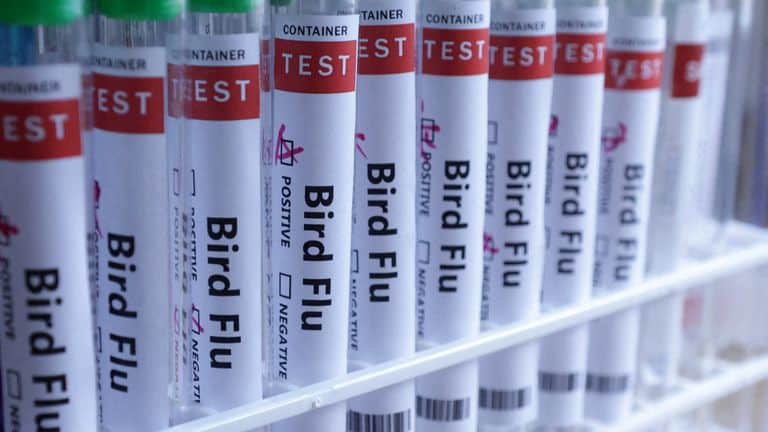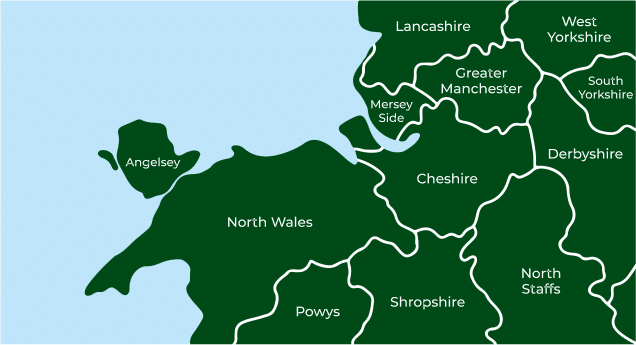Main Menu

The UK’s Chief Veterinary Officer has confirmed a case of influenza of avian origin (H5N1) in a single sheep in Yorkshire following repeat positive milk testing.
The case was identified following routine surveillance of co-located livestock on a premises where avian influenza had been confirmed in captive birds. Defra has introduced livestock surveillance on infected premises following the outbreak of avian influenza in dairy cows in the US.
The infected sheep has been humanely culled to enable extensive testing. Further testing in the remaining flock of sheep at the premises was undertaken by the avian influenza national reference laboratory at the Animal and Plant Health Agency Weybridge laboratory. No further infection with avian influenza virus was detected in the remaining flock and this remains a single case in a mammal detected on the premises.
While this is the first time this virus has been reported in a sheep, it is not the first time influenza of avian origin has been detected in livestock in other countries. There is no evidence to suggest an increased risk to the nation’s livestock population.
However, the UK Chief Veterinary Officer is urging all livestock keepers to remain vigilant to the clinical signs of avian influenza following recent outbreaks. All keepers must maintain good biosecurity which is essential to protect the health and welfare of their animals and critical to preventing the further spread of disease in the event of an outbreak.
In line with the UK’s international reporting requirements, this case will now be reported to both the World Organisation for Animal Health (WOAH) and the World Health Organisation.
UK Chief Veterinary Officer Christine Middlemiss said:
“We have confirmed the detection of influenza of avian origin (H5N1) in a single sheep on a farm in Yorkshire. Strict biosecurity measures have been implemented to prevent the further spread of disease.
“While the risk to livestock remains low, I urge all animal owners to ensure scrupulous cleanliness is in place and to report any signs of infection to the Animal Plant Health Agency immediately.”
The UK Health Security Agency (UKHSA) has said that avian influenza is primarily a disease of birds and the risk to the general public’s health is very low, but people should not touch any dead or sick wild birds they find.
The Food Standards Agency advises that properly cooked poultry and poultry products, including eggs, remain safe to eat and avian influenza poses a very low food safety risk to UK consumers since the H5N1 virus is not normally transmitted through food.
Dr Meera Chand, Emerging Infection Lead at the UK Health Security Agency, said:
“Globally, we continue to see that mammals can be infected with avian influenza A(H5N1).
“However, current evidence suggests that the avian influenza viruses we’re seeing circulating around the world do not spread easily to people – and the risk of avian flu to the general public remains very low.
“UKHSA will continue to monitor the situation closely alongside Defra, DHSC, Animal and Plant Health Agency and Food Standards Agency.
“UKHSA has established preparations in place for detections of human cases of avian flu and will respond rapidly with NHS and other partners if needed.”
Robin May, Chief Scientific Adviser at the FSA said:
“We are working very closely with Defra, UKHSA and Food Standards Scotland following the discovery of avian influenza virus in a sheep in the UK. Our advice remains that bird flu poses a very low food safety risk to UK consumers since the H5N1 virus is not normally transmitted through food.
“We continue to monitor the situation closely and will assess any emerging information to continue to ensure UK food is safe.”
What you can do
Avian influenza is notifiable in all poultry and other captive birds and Influenza of avian origin is notifiable in both kept and wild mammals. If you suspect your animals are infected with avian influenza virus you must report it to the APHA immediately by calling:
· 03000 200 301 in England
· 0300 303 8268 in Wales
· Contacting your local Field Services Office in Scotland
Failure to do so is an offence.
We have published a case definition for influenza of avian origin to support decisions around reporting suspicion, together with further information on how we monitor the risk of influenza of avian origin in wild mammals on gov.uk.
Share this post
Follow us on Instagram

Sign up to our newsletter
Stay updated to the latest news and exclusive promotions right in your inbox.
Request a free monthly Farmart Magazine.

Request a free monthly Farmart Magazine.
